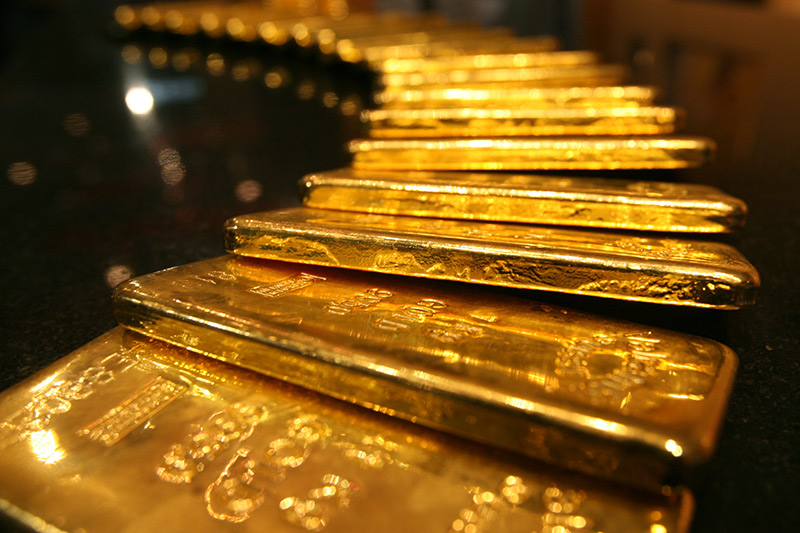Investing.com - Gold dipped in early Asia on Wednesday with the focus on China prices data and an upcoming European Central Bank review of interest rates.
On the Comex division of the New York Mercantile Exchange, gold for April delivery fell 0.25% to $1,254,00 a troy ounce.
Silver futures for March delivery fell 0.42% to $15.320 a troy ounce, while copper futures for March delivery inched up 0.04% to 2.235 a pound.
Earlier this week, China reported that exports in February slumped by 25.4% on an annual basis, suffering their worst monthly decline since the Financial Crisis. China is the world's largest consumer of copper, accounting for more than 40% of the world's total.
Earlier in Japan, CGPI data showed a 0.2% fall, less than the 0.3% drop seen in February month-on-month and a year-on-year decline of 3.4%, matching expectations.
As well, the Reserve Bank of New Zealand Thursday cut the official cash rate 25 basis points to 2.25%, and signaled further easing may be needed to ensure future inflation settles near the middle of the target range.
NZD/USD traded at 0.6631, down 0.30%.
In Australia, the MI inflation expectations rose 3.4%, a dip down from 3.6%.
And in China comes CPI for February with a gain of 1.1% expected month-on-month for a year-on-year pace of 1.9%. Producer price data is expected to show a 4.9% drop year-on-year.
Overnight, gold closed slightly lower on Wednesday, amid rallies in global equity markets, dampening the appeal of the safe-haven asset ahead of a critical meeting by the European Central Bank's Governing Council.
Gold extended losses from the overnight, Asian session as crude rallied by more than 2% in European afternoon trading, erasing some of its losses from Tuesday's sell-off. The rebound was triggered by reports out of Saudi Arabia, where sources told Reuters that the kingdom is looking to procure loans between $6 and $8 billion in an attempt to stave off a budget deficit that reached as high as $100 billion last year. The report fueled speculation that Saudi Arabia could consider further concessions with OPEC and Non-OPEC producers in an effort to boost oil prices above $50 a barrel.
Meanwhile, stock markets worldwide moved higher in anticipation of the adoption of a wave of stimulus measures by the ECB's Governing Council at Thursday's closely-watched meeting.
The ECB is widely expected to approve further easing initiatives as a means for bolstering economic growth throughout the euro zone and staving off inflation. When the central bank last met in January, it held its benchmark interest rate at a record-low of 0.05. The ECB could also lower its deposit and margin facility rates, while increasing the scope of its €60 billion a month bond buying program.
In the U.S., wholesale inventories rose by 0.3% in January, increasing by the highest level since last June and halting a three-month streak of negative moves. Analysts expected to see a slight decline of 0.1% for the month. As a result, the inventory to sales ratio fell by 1.3%, marking its fourth consecutive monthly decline.
